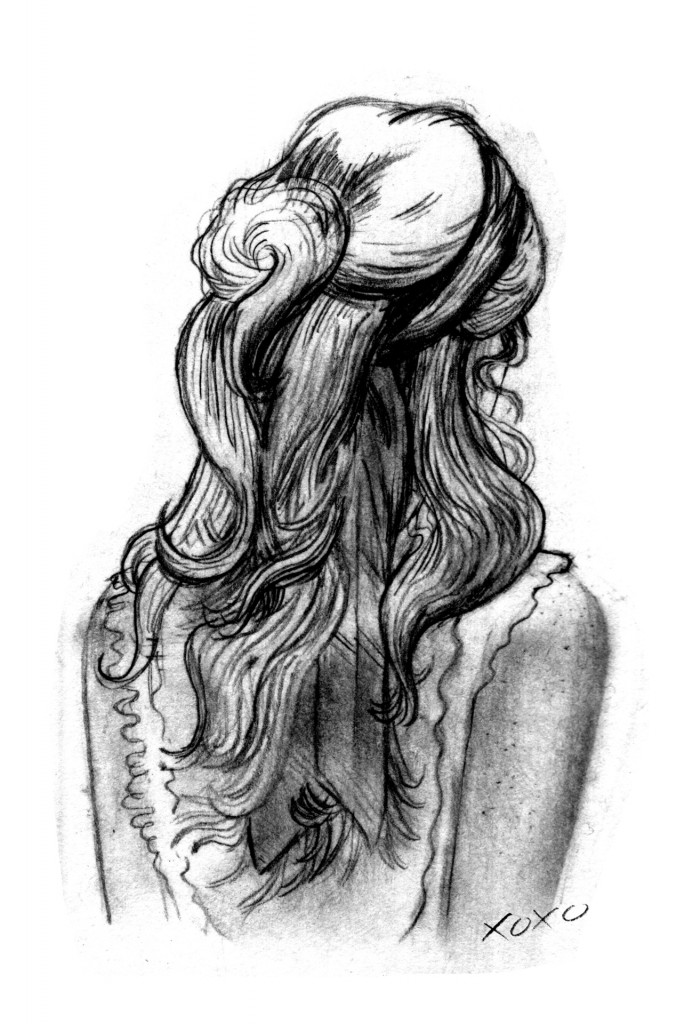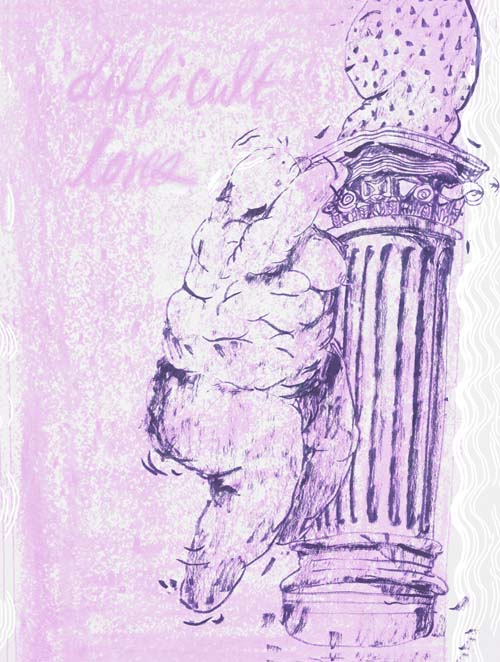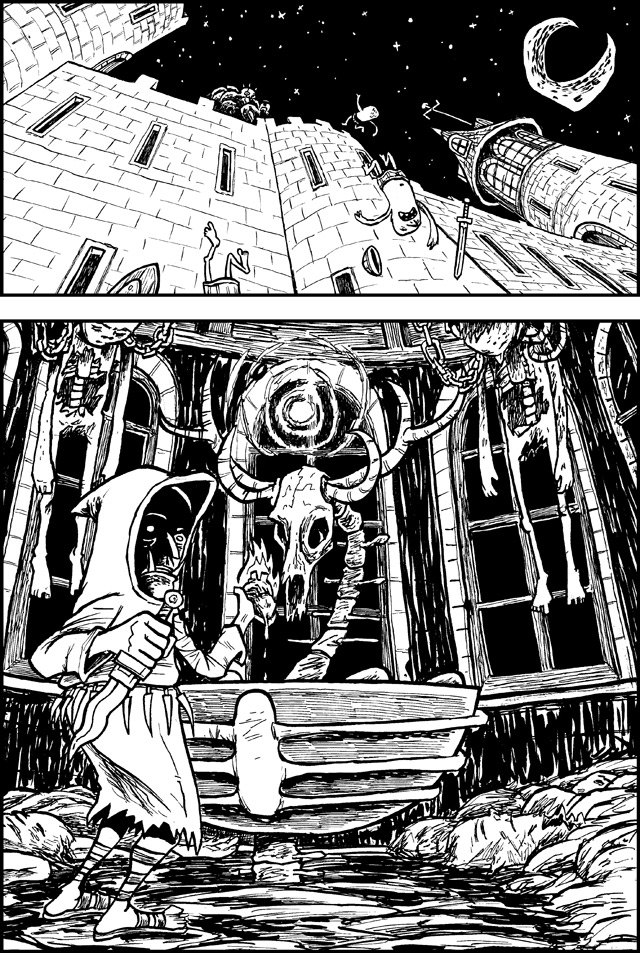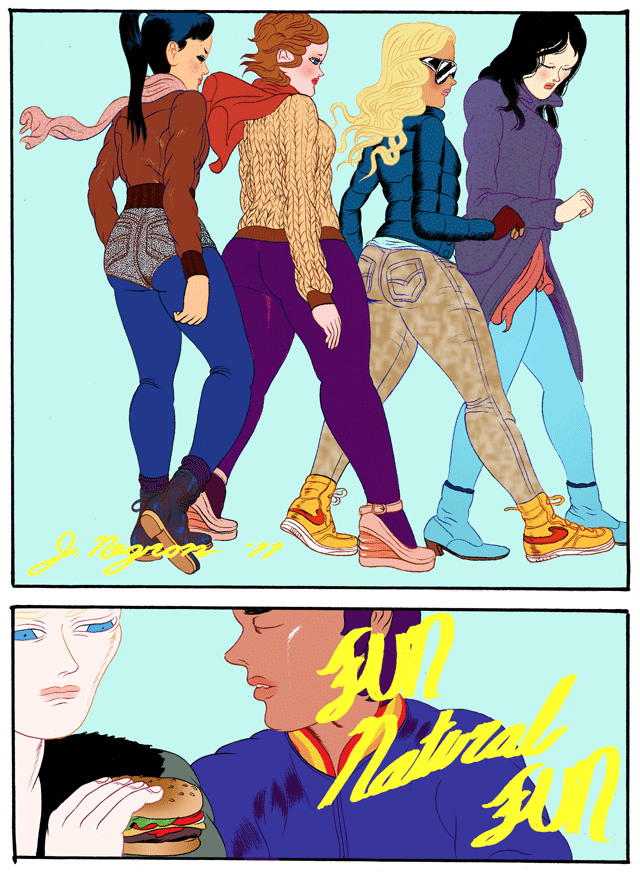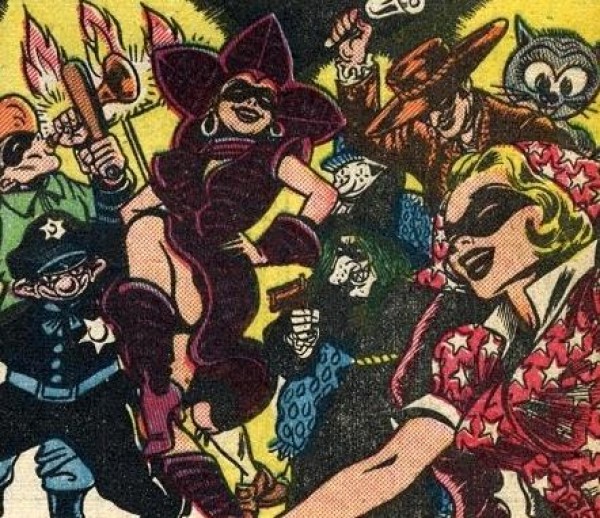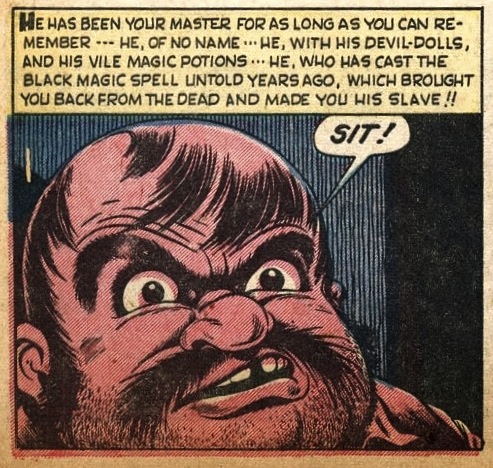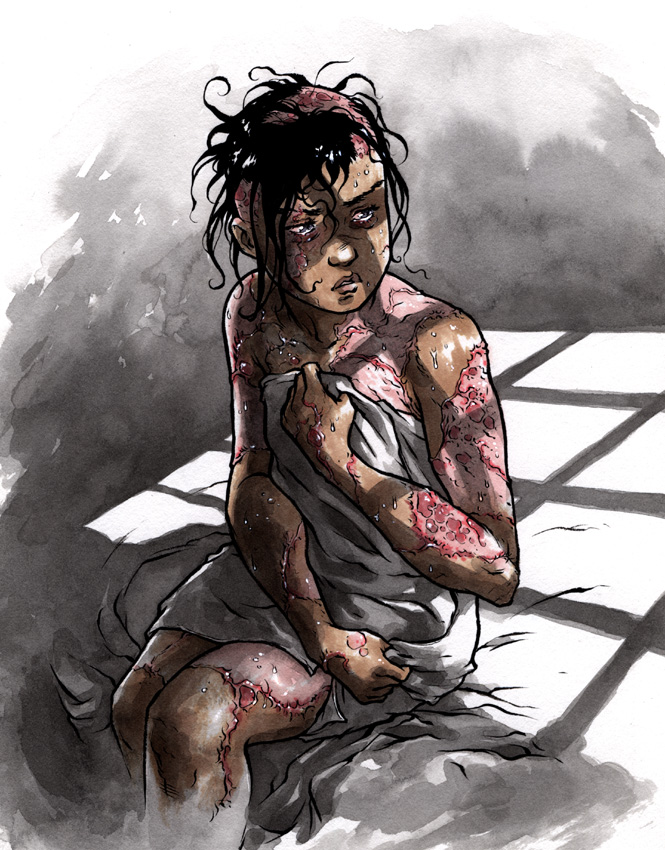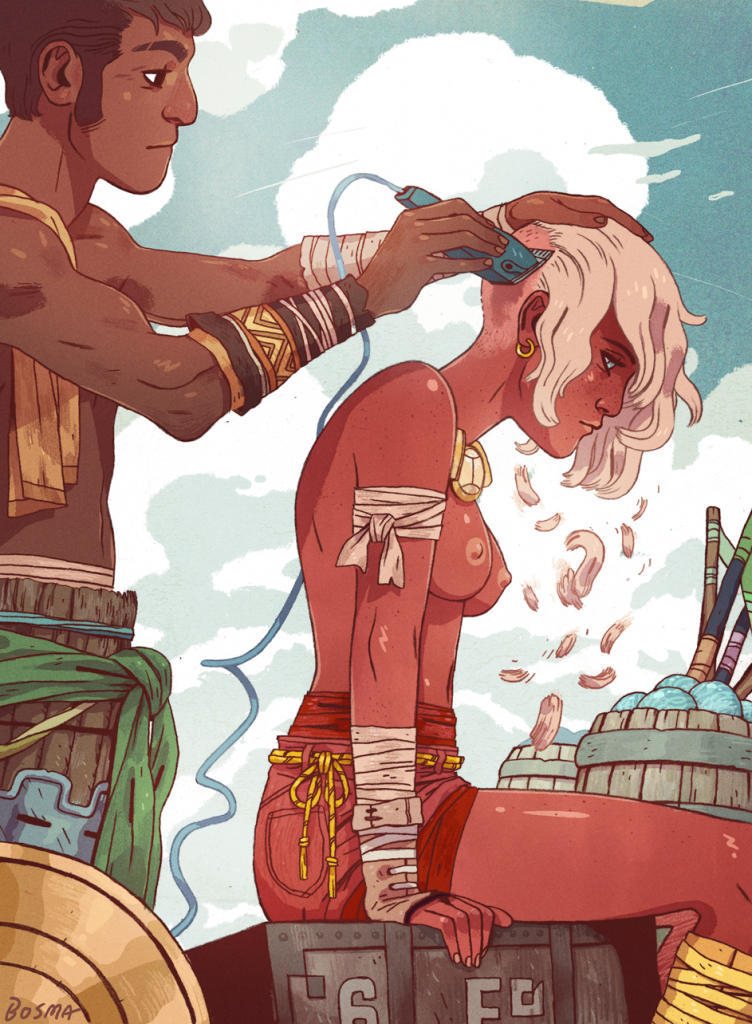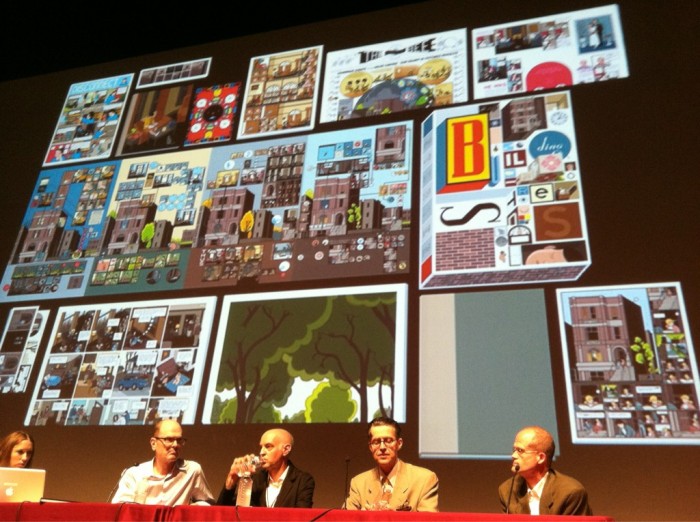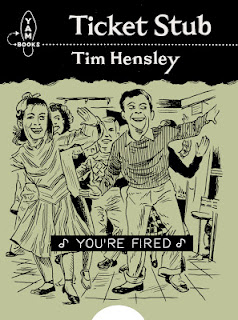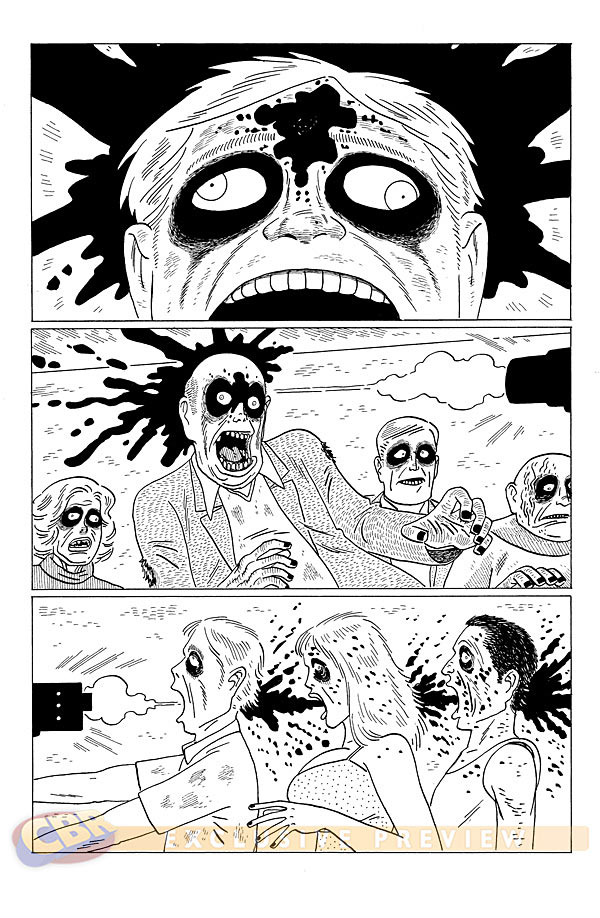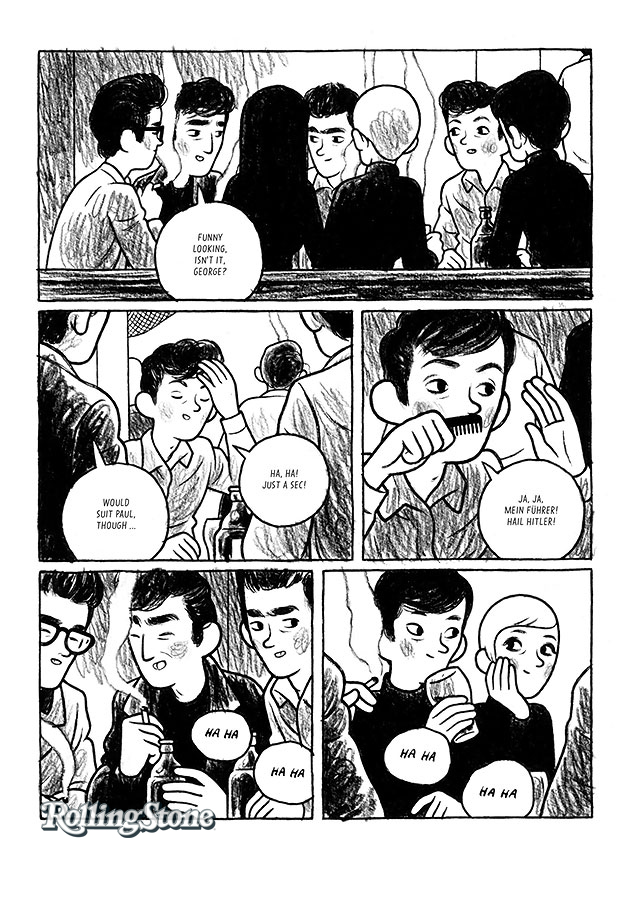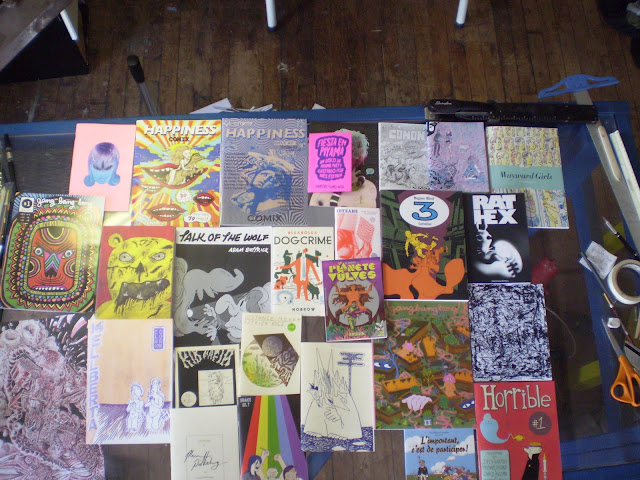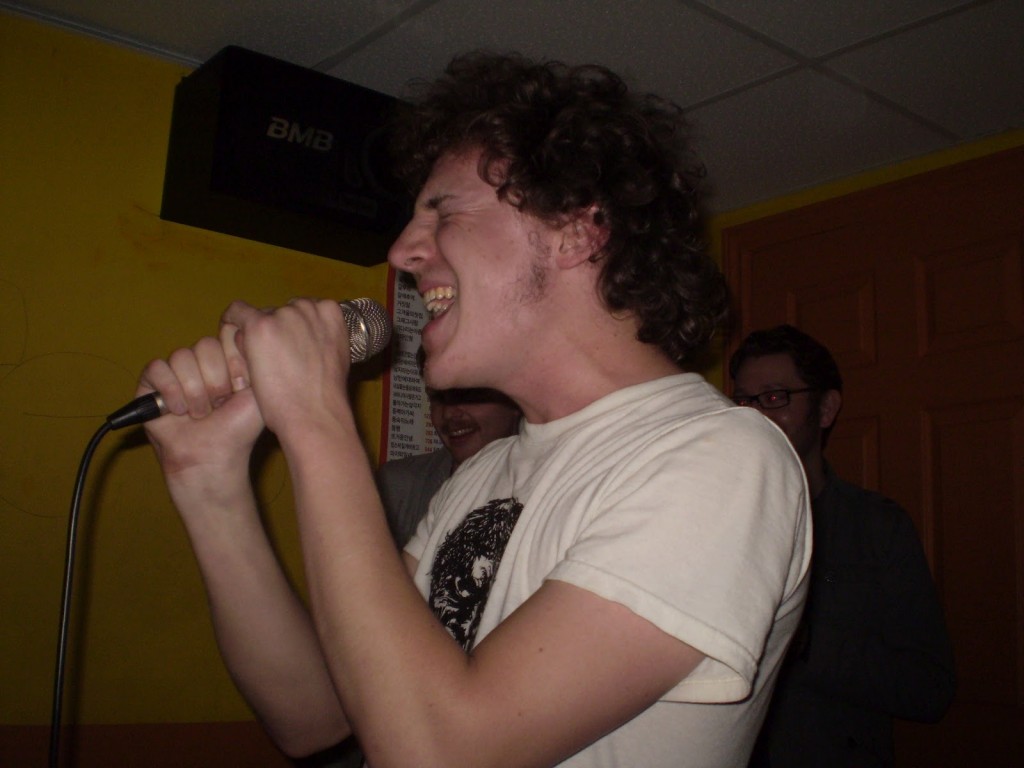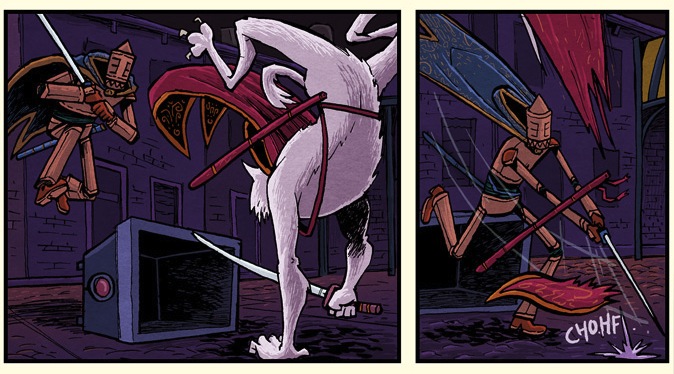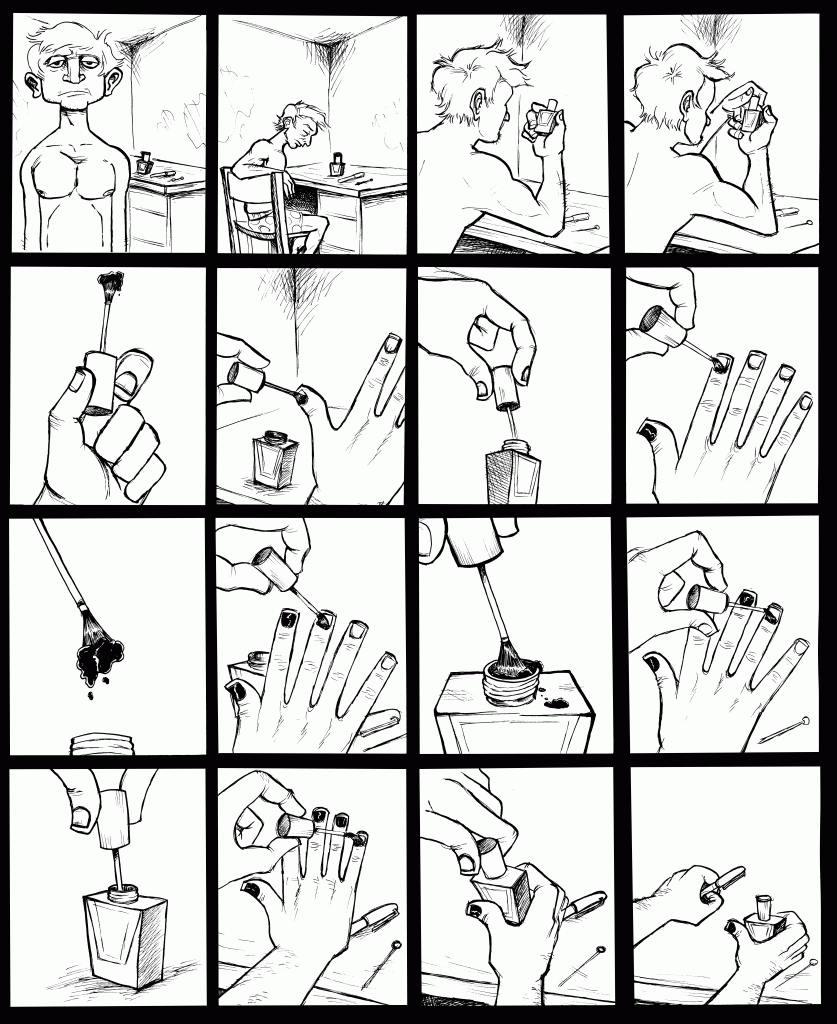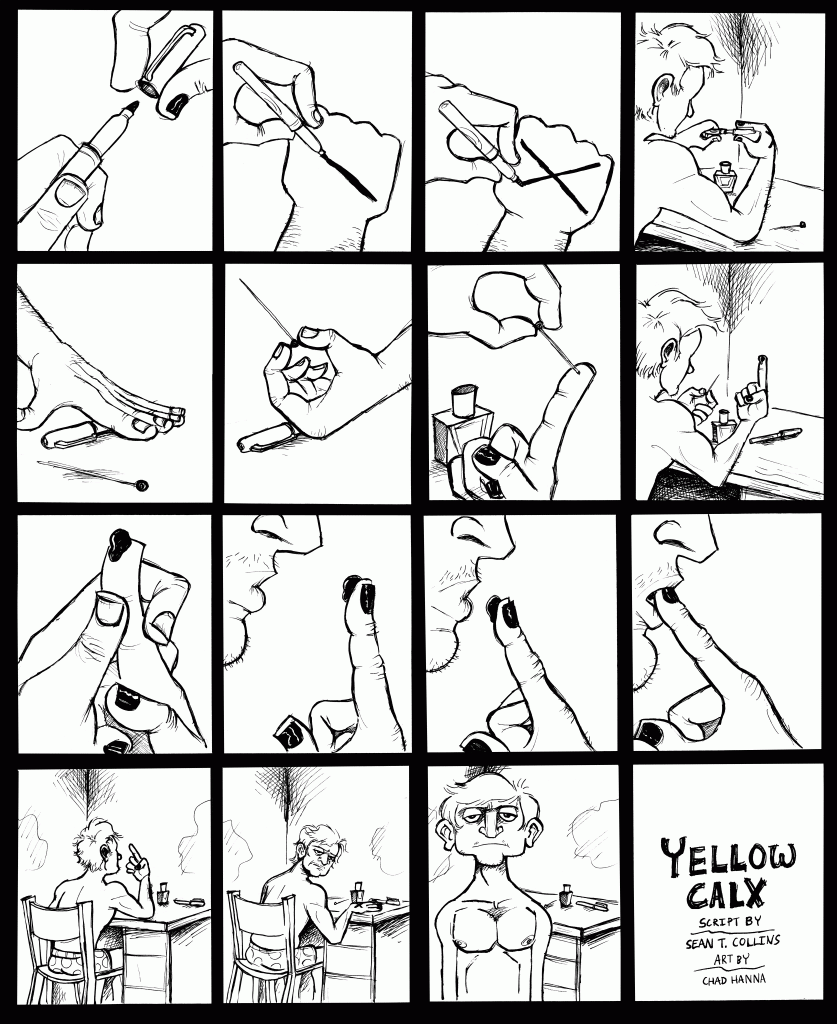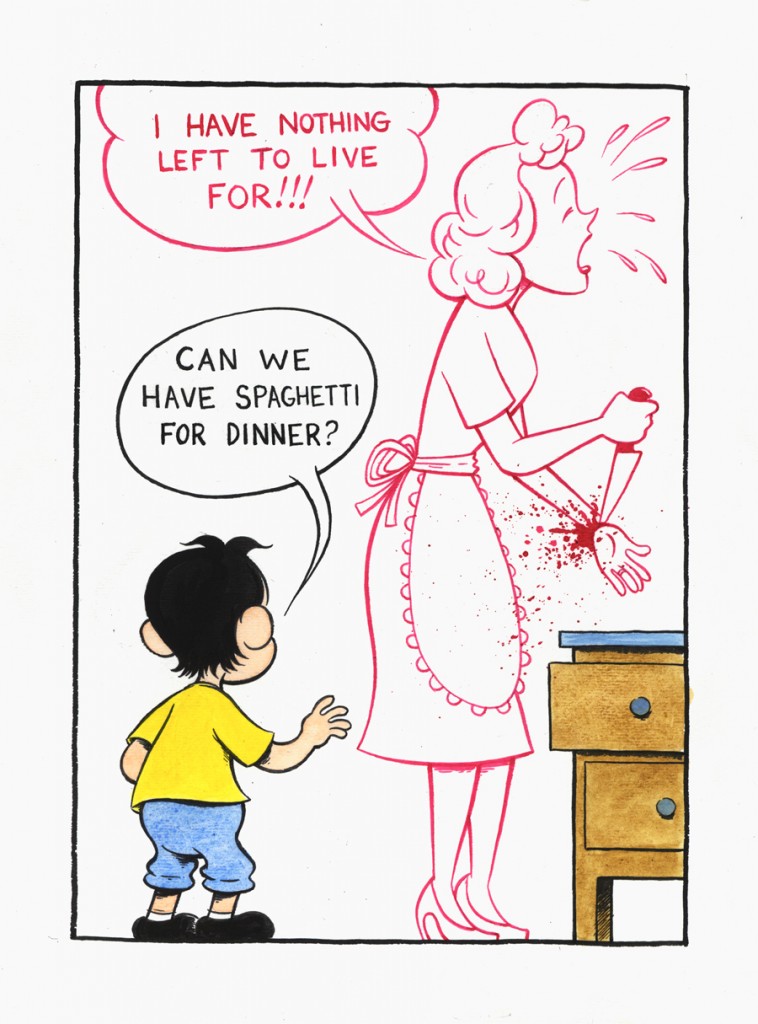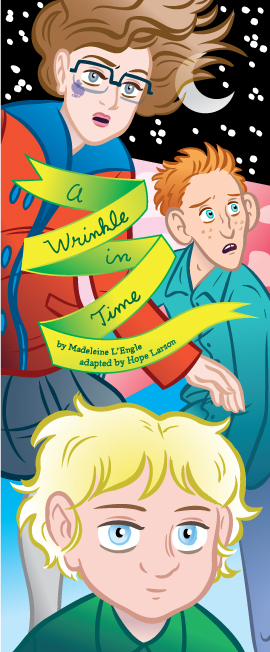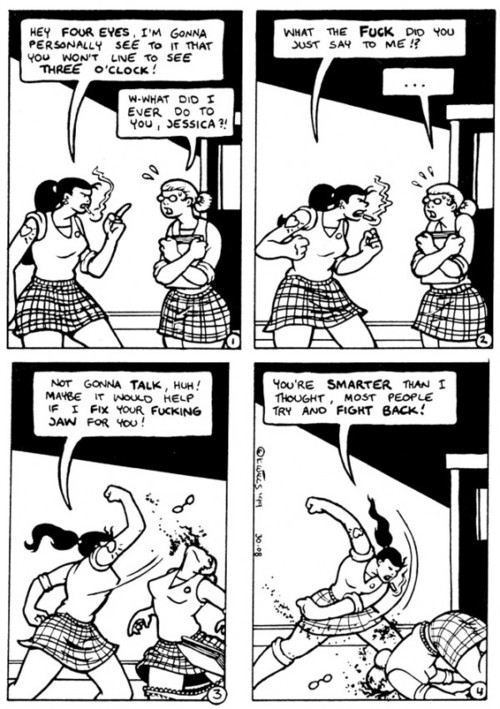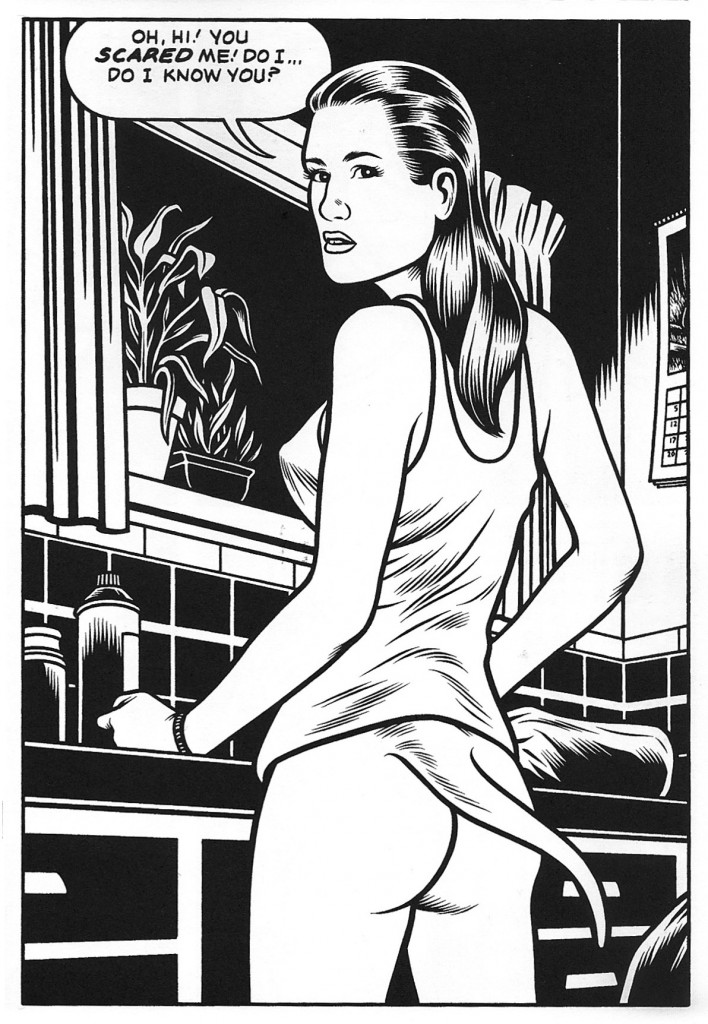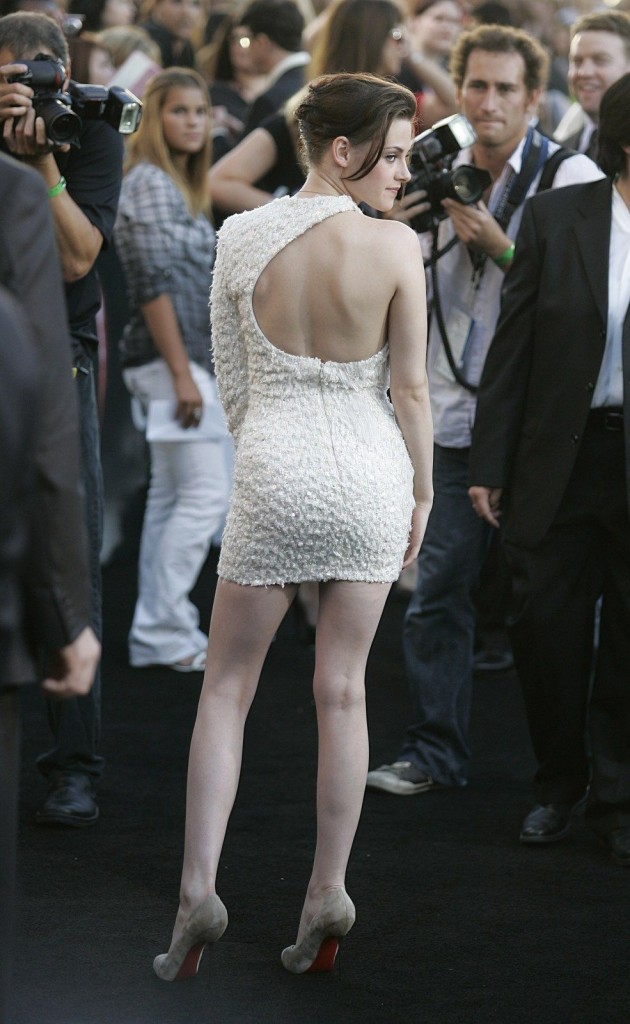In the latest episode of my Game of Thrones/A Song of Ice and Fire podcast, my co-host Stefan Sasse and I discuss this weekend’s tremendous “Blackwater” episode before launching into a lengthy examination of violence against children in the books. Not exactly light lunchbreak listening, I suppose, but food for thought.
Mad Men thoughts, Season Five, Episode Eleven: “The Other Woman”
* I’m kind of glad I had to spend Sunday night writing my Game of Thrones “Blackwater” review instead of watching this episode of Mad Men back-to-back with it. I think I would literally have died otherwise.
* At some point during the episode I simply wrote down the phrase “Christ, this is gross.” I can’t quite tell when in the episode this happened from where it falls in my notes. I think that’s telling.
* Before we get into everything we must get into, I’d like to point out that Mad Men continues to be one of the funniest shows on television, and this enormously upsetting and dispiriting episode was no exception. Highlights:
** Ginsberg’s mistress-inspired Jaguar tagline: “Jaguar: You’ll love it when you’re in it”
** Kenny standing and silently giving Peggy an ovation for her bacon-saving conference-call pitch brilliance
** Peggy staring at the catered lobster from outside the conference room
** Lane’s solution for everything: “I say we take our bonuses and move on!”
** Don literally throwing money in Peggy’s face
** Pete describing the commute: “It’s an epic poem for me to get home.”
** Ginsberg’s secret technique for coming up with good Jaguar copy: “I kept imagining the asshole who’s gonna want this car.”
** The “Ginsberg, you magnificent bastard” look of disbelieving awe and delight on Don’s face when Ginsberg gives him the great line he comes up with for the car (cf. Kenny’s reaction to Peggy)
** Even after she’s made the decision to leave, Peggy still drinks when she hears Joan’s been made partner
Whatever else they are, the really great shows tend to be darkly hilarious. That requires a mastery of tone that many other shows, even many good ones, don’t trust themselves to maintain — Battlestar Galactica, much as I love it, could never bring itself to have fun at the expense of any of its characters’ suffering (except Gaius Baltar’s, which is a big part of what made him the best character on that show). But you can count on Mad Men to go for a laugh even — especially — when plumbing the absolute depths of its characters’ emotions. Laughter is likely the only way any of us can feel in control when presented with life’s inevitable misery, I suppose. It’s a big joke, but we’re in on it, at least for a moment or two.
* “Do you really want help, or do you wanna yell at me?” “I don’t know yet.” I know I’m a broken record, but Don and Megan do not have a dysfunctional relationship. Look at the deft way in which Megan identifies, gently mocks, and thereby neutralizes one of Don’s most destructive relationship dynamics in that brief exchange. That is some high-functioning shit!
I’m not saying they don’t have problems, or even issues — they obviously do. I’m just saying everyone has problems and issues in their relationships; Don and Megan are better at addressing theirs than literally any other couple on the show, and even when they have ruptures and blow-ups, you can understand why. Megan’s intense discomfort with discussing the idea or appeal of mistresses with Don for any reason, even just as the underpinning for some ad copy, is palpable, but totally understandable given Don’s history.
Similarly, Don’s command that Megan not take her acting gig if it means moving to Boston for a preview run appears to her like he’s being both possessive of her and dismissive of her talents and career prospects, but the way he clearly has relented the next time the subject comes out indicates that this is just a very Don way of reacting to the understandably upsetting prospect of your wife moving away for three months. I wouldn’t be happy about that either! Note that when she first brings up getting a callback and an interview with the producer, Don, despite all his preoccupations, is genuinely interested. “That’s terrific,” he responds, and you think he’s just giving her a boilerplate atta-girl, but then he pauses, and says with real dawning enthusiasm, “That’s a big deal!” He didn’t have to continue the discussion at all, but instead he chooses to express to her that he understands how important this is and is as excited about it as she is. You have to view his later freak-out in that light — even though Megan is likely right and Don has never seriously considered what her success might mean for their relationship, I don’t think that means he doesn’t want her to be successful, just that he hadn’t thought it through. Don takes his time, but he’s capable of coming around to new things, we’ve learned time and time again.
Ultimately, the difference between Megan and Don and any other couple comes down to Megan’s line about how she’d handle being forced to choose between acting and Don, should he decide to make her make that decision: “I’ll choose you, but I’ll hate you for it.” Betty or Pete would grin and bear it and be miserable and make everyone else miserable in the process; a few years ago Don and Joan would have swallowed it too. But Megan realizes there’s no future in a future like that, acknowledges it, and tells Don. Now he, and they as a couple, can evaluate the truth of the matter, instead of performing emotional kabuki. TV and film have trained us to view relationships as either/or — either you’re perfectly happy all the time, or a single fight is indicative of impending doom. But this is what a healthy relationship between two adults who aren’t clones of one another looks like.
Man oh man do I want things to work out for these two crazy kids!
* After all that, it sure was awful to discover that the producers wanted to see what Megan’s ass looked like.
* One last point on Megan—It looks like my crackpot theory is at least half-right: Ginsberg has a major thing for Megan. Staring wet-eyed at her as she breezes in and out of the conference room for afternoon delight with Don. “She just comes and go as she pleases, huh?” It took me embarrassingly long to realize that he wrote his killer-app tagline for Jaguar, “At last, something beautiful you can truly own,” about Megan. When Don sells the ad to Jaguar, he’s unwittingly selling a much younger man’s love for his own wife.
* Alright, I put it off long enough: Joan. In a show that’s shown us more than its fair share of completely mortifying and hateful things, her storyline in this episode is King Shit of Turd Mountain. Part of this is obvious. Joan is an intelligent, complex, capable, caring human being with a full inner and outer life, integral to the lives of any number of other human beings with which she interacts — from everyone at the agency, her participation in which is vital, to her child — but because she is a woman, and an attractive one, the fullness of her personhood is denied. Society in general and the men with whom she interacts in particular commodify her into an object to be bought and sold, a pleasing set of curves, a Jaguar you can fuck. (“At last, something beautiful you can truly own.”)
* But worse — worse than that, if you can imagine it! — is how this commodification is presented as a grotesque parody of empowerment. By agreeing to allow a stranger to purchase access to her tits and ass and pussy for the night, Joan achieves financial and professional success that would be impossible for her to achieve any other way. It really is the smart business decision for her, guaranteeing a better future for her and her baby and her business, provided you’re willing to ignore the intangible cost to the human fucking dignity of everyone involved.
* Worse still? Despite their years together — 13 and counting, as Don helpfully/crushingly reminds us during his conversation with Peggy — all of the partners save Don are capable of viewing the leasing of Joan’s sex to some car salesman as a business expense. I’ve never wanted to punch Bert Cooper in his grinning face harder than I did when watching his nonchalance ooze all over the screen during those meetings. And Pete! Good Lord, whatever was good in him has been crushed to pieces. Actual note I wrote while Pete pitched her on prostituting herself: “What the FUCK, Pete, what the FUCK!” They’ve forced Joan into a position from which they can never respect her again, right? How can they respect her? That was my first thought. But then I thought, how can they respect themselves? Then: How can she respect them? Then: Given what she’s already seen of all of their behavior, how could she ever have respected them? Is this any worse than what all of them, to a man, have already done in her line of sight? Finally: How can she respect herself? Every time she sits in on a partners’ meeting, all of them knowing what she had to do to get there — isn’t her entire life and future now Jane Siegel-Sterling’s new apartment, forever tainted by sex she shouldn’t have been asked to have?
* But the absolute worst, from the narrow and narcissistic perspective of a heterosexual male Mad Men viewer? The loathsome car saleman Herb’s final line before getting down to business. “I don’t know how much longer I can restrain myself. Let me see ’em.” Emphasis mine. Actual, verbatim thought when looking at Christina Hendricks mine. Yours too, if you swing that way, I guaranfuckingtee it. The parallel storyline of Megan the actress being evaluated based on her hotness the same way we viewers evaluate the Mad Men actresses based on their hotness made it crystal clear: We’re all implicated in this transaction.
* OH JESUS PETE’S READING GOODNIGHT MOON TO HIS BABY DAUGHTER AFTER HELPING TO CREATE THIS UNBEARABLY SHITTY WORLD FOR WOMEN THAT HIS DAUGHTER WILL GROW UP TO INHERIT, OH JESUS. Yeah, that one hit home.
* Don’s involvement in and reaction to Joan’s transaction was the added degree of difficulty few if any other shows would even attempt. For starters, now we know why we spent so much time with the two of them last episode, and it wasn’t just because it’s deeply delightful to watch Don and Joan, and Jon Hamm and Christina Hendricks, interact. It was to establish the depth of their friendship and respect for one another, a respect neither has every sullied (my, it’s perverse putting it this way, but it’s the truth) by sleeping together. (See also Olsen, Peggy.) As my co-worker pointed out, the show very much teases the possibility that had Joan known her friend Don was not on board with the plan, she never would have gone through with it at all. One thing the really great ensemble dramas do is explore relationships in which one character’s external voice echoes the internal voice of another. Downton Abbey‘s Thomas/Mrs. O’Brien partnership is the toxic, negative example of this, a case in which each brings out the worst in the other, eggs the other on, provides the other with the support and cover to behave abominably. It’s easy to see how Don and Joan can provide the exact opposite for each other, and how his failure to get to her in time — a failure abetted by Pete and Lane, who repeatedly smooth over the objections of the objectors (Don, but to a lesser extent Roger, who loathsomely, gutlessly agrees to go along with the pitch to Joan but clearly hates it and assumes she’ll hate it too) when presenting the plan to Joan — could well have been the thing that enabled her to go through with what she did.
* My co-worker also cracked open something I’d never ever thought of before: Don hates the idea of Joan prostituting herself because his mother was a prostitute! Moreover, this is, in its way, the Rosetta Stone for his entire view of women — relentlessly sexualized and possessive, but disgusted with himself and them alike for that possessive element. He’s all too familiar with what it means to own something beautiful, or at least rent it.
* Welcome to THE WORLD’S MOST ORANGE APARTMENT, Don Draper. Hope you survive the experience!
* That time shift? Clever girl, Mad Men.
* “I was just about to get into the shower, but how can I help you?” Depressingly/hilariously, even Joan’s alibi is sexy.
* Don’s “one of those good ones” according to Joan, whose condescension in that line is almost tender. Don’s pitch to Jaguar was “one of those good ones” according to Roger, whose hope in that line is almost touching.
* Don thought he’d won the Jaguar account, but he was doubly wrong. First of all, he was unwittingly cuckolding himself by selling a line written by Ginsberg about his own wife. Second, he was bringing coals to Newcastle, telling a man who’d already found a way to own something beautiful that only this car could make that possible. But everyone heard what they needed to hear. It was only when Joan entered Roger’s office along with the other partners that Don’s own failure — to protect her, to succeed on his own — became known to him. I wouldn’t be in a celebrating mood either.
* “Every time someone’s asked me what I wanted, I’ve never told them the truth.” Lane provides an epitaph for the entire episode, which is all about the consequences of choosing to tell the truth about what you want, or not.
* I miss those giant headphones of Pete’s. My Dad had a pair.
* “I can never tell, ballerina, if you’re ambitious or just like to complain.” With that, Freddy Rumsen sums up my own dilemma with Peggy all season long, ever since a friend suggested that the source of Peggy’s troubles is that she might just be mediocre, what Bill Murray once devastatingly called a “medium talent.” The contrast with the “genius” of Michael Ginsberg, and her patterning of her life and career after an endangered species like Don, seemed to imply that her talent and ambition would only serve to lock her into a middling career as a middling person. Fitting that Freddy breaks her free of the impasse by telling her it’s what Don himself would tell her to do. She says as much to Don, in fact: “You know this is what you would do.” She’s trying to be like him even as she leaves him behind.
* My first thought when I saw she was interviewing with the odious, improbably spelled Ted Chaough? “Oh gross, Ted Chaough!” The kind of guy who knows his rival must be talking about him all the time, you know? Blehh. But when I saw his “negotiated” job offer — all the authority Peggy’d demanded as copy chief, but with more money than she was asking for — I sure did a 180. I shouted “Peggy! Fuckin’ take the job, Peggy!” at the screen! Who cares if Ted’s just the professional version of Duck Phillips, trying to steal the other guy’s girl?
* But I think there’s more to it than that, clearly. You don’t get to be a partner in an ad agency by throwing money and power at someone you actually think is so-so just to spite someone else. Peggy really is great at her job, and we’ve been so dazzled by Don for so long, and by Ginsberg for this brief honeymoon period, that we’ve forgotten it just like they did. (Hence the Hail Mary conference-call pitch — we needed that evidence.)
* Don is crushed by Peggy leaving. Crushed like we haven’t seen him be crushed since Anna Draper died and he sobbed in Peggy’s arms. He snorts with peevish, furious, smiling impotence when she tells him she’s going to his hated rival’s firm, like a child. Then he takes her hand and kisses it — the hand she used to come on to him during her first day only for him to brush it away, the hand she used to comfort him after the death of his only real friend (other than, perhaps, Peggy herself). He pours six years of affection, intimacy, and rivalry into a physical interaction. It’s the kiss they never shared, it’s a romantic gesture from a dead-and-gone era, it’s an indication of huge and melodramatic Respect funneled through the pressing of lips against skin. He holds it and holds it and holds it. They both hold back tears. I couldn’t.
* The kicker: Joan watches Peggy walk away from Sterling Cooper Draper Pryce. The symbolically resonant death-elevator opens not on an elevator shaft, but a kickass Kinks song about being totally at the mercy of a kickass woman. If Jaguar is proof that SDCP has a future, that exit, that song, is proof that so does Peggy.
* (Poor Kenny–Peggy broke the pact!)
* There are a couple of episodes to go, so this may change — the Lane shoe still needs to drop, obviously, and Jaguar could run back into the jungle. But now we at least can see how the show can square the circle of the agency’s story this season. The show has always ended each season with good news on the business end: Don defeats Pete, Don defeats Duck, the team defeats the Brits, Peggy and Kenny secure just enough of an account to show the world that SDCP isn’t dead after the departure of Lucky Strike. But this season was so devoted to showing everything that wasn’t working at SDCP that I wasn’t sure how, or if, they’d maintain the pattern. Could Mad Men even get away with showing the characters fail on a professional level? I don’t doubt that Matthew Weiner has the guts to do it, mind you, but would it injure a key element of the show’s appeal, even though we all oughta know better? Well, here’s your answer, perhaps: A victory that feels like a failure, like a loss, like the only way to truly be a winner is to get on the elevator and get the hell out of there.
* I’ll say it: Best show on television right now, best episode ever?
Game of Thrones thoughts, Season Two, Episode Nine: “Blackwater”
For my recap/review of Episode 19, please visit Rolling Stone.
You have no idea how hard it was not to just title this one “Smoke on the Water” and call it a day.
xoxo
xoxo, a Gossip Girl zine
edited by Robin McConnell
cover by Maré Odomo
contributions by Warren Craghead, Sean T. Collins and Dan White, Benjamin Marra, Jacob Ferguson, Michael Deforge and Steve Rolston
Coming soon!
Lost thoughts revisited: “The End” and other endings
The series finale of Lost aired two years ago today. Many critics are celebrating by digging up their reviews at the time, and I figured I’d do the same.
I wrote four separate posts on the finale:
Part one
Part two
Part three
Bonus Finale Face-Off: Lost vs. Battlestar Galactica
The first was a brief, in-the-moment reaction to what I’d just seen. The second and third were long, detailed responses, posted as comments in the thread for the original post. (That thread is the single best, largest comment thread I’ve ever hosted, and is well worth reading in its entirety. It’s a real who’s-who of smart comics people, too.)
The fourth post was a comparison to the end of Battlestar Galactica that’s obviously quite spoilery for both shows, but which is where you’ll find the best explanation of my main problem with the Lost finale. For the benefit of those of you who haven’t watched BSG and don’t want it spoiled, here’s an edited version:
The first problem with the mysticism in Lost‘s finale, i.e. the purgatorial afterlife, is that it’s not tied to the show’s central driving conflict and overarching mythology. While it does seem like the Island is the world’s most direct manifestation of the force for good behind the flashsideways afterlife, that’s only a link in a very general sense. It seems like any group of people who were tied together by anything would have ended up in much the same place; moreover, the Island plot is resolved without requiring any knowledge of the show’s conception of the afterlife, if that makes sense. The afterlife ties things together emotionally, not narratively, and has no significant connection to the show’s big plot questions.
The second and more damning thing for Lost is that its conception of spirituality as articulated in that final sequence is awfully banal: The afterlife is a place generated by the force of goodness behind all major religions where you reunite with your loved ones, atone for your sins and shortcomings, and find true happiness before achieving literal enlightenment. Generic New-Age self-help stuff—whoopedy doo! The creators of Lost could have just mailed every viewer a copy of The Celestine Prophecy and been done with it. Nothing about this idea challenges me or haunts me, and thus I find myself mentally returning to the show very infrequently, if at all.
The best series finales I can think of are both sharp and sticky. They hurt you as well as wow you, and they keep you coming back, and you end up thinking better of the show because of them. Put The Sopranos and Battlestar Galactica (and even Twin Peaks, which was approaching it from an entirely different and more desperate direction) in this category. The worst devolve into sentimentality and didacticism — an unearned victory lap that alienates you from what’s gone before. The Wire‘s entire final season qualifies. Some are a sort of lateral move, in which you get a nice summation of the appeal of the series without any kind of real valedictory oomph. The final episodes of Deadwood and Dan Harmon’s last Community — neither of which were conceived of or billed as series finales, yet both of which were done by showrunners who’d seen the writing on the wall — fit this bill.
And then you have Lost, which is almost a category unto itself: nailing it in some ways (everything involving Jack), blowing it in others (the flashsideways — its unimaginative ecumenicism, its superfluousness to the rest of the final season, its negation of so much of the preceding season’s central narrative drive), and coming out as a wash in others (I love that so many factual questions were left unanswered, but like everyone I also hate that my pet factual questions were among them). As time passes it’s become undeniable that the finale hurt the show for me, but not so badly that I don’t still appreciate and enjoy everything I appreciated and enjoyed about the show before it aired. I don’t feel I wasted my time.
Comics Time: Difficult Loves
Difficult Loves
Molly Colleen O’Connell, writer/artist
Domino Books, May 2012
24 pages, 2 poster inserts
$6
Buy it from Domino
For today’s Comics Time review, please visit The Comics Journal.
Carnival of souls: Chris Ware, Dan Harmon, Lena Dunham, Sam Bosma, more
* Here’s a better look at Chris Ware’s elaborate packaging for Building Stories, via Chris Mautner, who helpfully contextualizes it with Jordan Crane’s NON #5 and Closed Caption Comics’ CCC #9.5. Also, they got J.J. Abrams to blurb it?!
* Dan Harmon, the mercurial creator and showrunner of the bizarre, hall-of-self-referencing-mirrors sitcom Community, has been fired from the show. With all my immersion in comics I thought of this in creators’-rights terms — how what’s now considered an outrage among fans of a show is frequently applauded by fans of comics (or comics characters, at least). The best thing I read about it is Maureen Ryan’s thoughtful essay on Harmon, Community, and learning to appreciate difficult people who don’t appreciate you back. I thought about that in comics terms, too.
* This piece by the New York Review of Books’ Elaine Blair on Lena Dunham’s increasingly terrific HBO show Girls is the best I’ve read so far due in large part to its focus on the show’s sex scenes. Girls is a sex comedy first and foremost, and they probably ought to have marketed that way rather than allowing it to become a referendum on what you think about wealthy artsy Brooklynites. The sex stuff is great, by the way — graphic and excruciating, like a ’90s alternative comic.
* If you like what Matt Wiegle’s doing Destructor, then you should be reading what he’s doing on Road of Knives.
* New Jonny Negron comic over at Vice. That opening image has me pining for autumn.
* The best thing about linking to Uno Moralez’s inimitable image/gif galleries is revisiting them to select representative images to post along with the link.

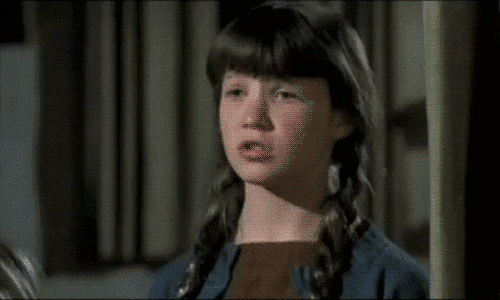
* Wow, Tom Spurgeon is right: Bill Everett’s imagery could be unsettling and odd. Click that link and see if you don’t come away with a whole new appreciation for Everett.
* Ross Campbell draws a worse-for-wear Katniss Everdeen from The Hunger Games. I know Ross disliked the movie, and I expect it’s because he suspects, correctly, that she’ll never look like this at any point during the movie series.
* I post a lot of sessy art, but this piece called “Haircut” by Sam Bosma is, I think, the sessiest I’ve posted in a long time.
* The Mindless Ones on last week’s Mad Men. Ginsberg über alles, Don.
* Every once in a while it pays to consider the remarkable progress that’s been made for LGBT equality in such a short period of time, and as that Ta-Nehisi Coates post points out it’s as much to do with giving people shit for being bigots and hoping they’ll want not to be given shit anymore as anything else.
Mad Men thoughts, Season Five, Episode Ten: “Christmas Waltz”
* Said it once before but it bears repeating: This is the sexiest show on television. And I’m not even talking about “Mother Lakshmi” bending over Harry’s desk and looking back and saying “Take me like this,” despite that being hotter than all the rumpy-pumpy on Game of Thrones combined. (That’s not a dig at Game of Thrones, really — sex on that show is not about pleasure and desire, for a reason.) I’m talking about the ELECTRIC SHOCK that ran through my body the first time we saw Don touching Joan, grabbing her around the waist to pull her away. I mean, holy shit, I had an involuntary seizure, practically. Simply seeing these two alpha predators in close contact was viscerally thrilling, and their dynamic throughout the trip to the Jaguar showroom (“Oh honey, what’s that?” Joan drawls about the sports car, rippling through the timestream to put me through puberty) and their long drunken afternoon at the bar was dynamite. Two people who each know the other is the most attractive person they’ve ever known, luxuriating in that shared knowledge, choosing never to act on it anyway? Aw man, that is like the richest dessert the show could possibly serve us. Seconds, please.
* The return of Paul! Though it turns out his time with the Hare Krishnas hasn’t really made him much happier, was I the only one who was glad to see he’d really gone for it? From what I can gather about critical and audience response to his earlier nods in the direction of protest and counterculture — his trip with the freedom riders, his black trophy girlfriend, his beard and weed and overall hipster affectations — no one really thought he had it in him to go this far. But he left it all behind, he really did — the things that are keeping him from full Krishna consciousness are loving a woman, wanting to write good science fiction, and worrying if people like him. How the hell could you not sympathize with that?
* Glad to see Ken Cosgrove’s not the only Sterling Coo alum who’s a sci-fi nerd. But perhaps there you see the contrast between Ken and, well, pretty much everyone, from Paul to Don to Megan to Peggy: Ken feels no need to suffer for his art.
* Harry stands out on this show because he has no gravitas. His discomfort and unhappiness and awkwardness is always played for laughs rather than treated as symptoms of a font of internal turmoil. Don not caring for him is telling: Don values depth, though he despises the flaunting of it.
* Lane’s storyline was awfully dispiriting. When he finally gave in and outright forged a check to get out of his debt to the taxman, even the score got upset about it. There’s something to the idea that it’s not the mercurial genius or the rich playboy or the frustrated up-and-comer or the out-to-lunch founder who’ll bring down SCDP, but the stiff-upper-lip accountant.
* Lane forges Donald Draper’s signature, something Don himself has been doing for years.
* Roger line of the night: “Bazooka Joe?” This is a guy who can make a crack about Don Draper taking a dump and in the next line be the most charming insult comic ever. I like that he gets everyone to laugh with him — I think that’s vital. He can’t just be magnetic and entertaining to us, he has to be the same way even for guys like Pete and Don.
* When Bert rained on Pete’s Jaguar parade during the partners’ meeting, I realized I simply love watching these guys together. The whole cast generally, but the unit of Don, Roger, Bert, Pete, and Lane specifically. I could watch an entire episode that was just a long partners’ meeting in real time. They play off one another in ways that are familiar yet unpredictable, a real trick.
* Don’s face at the play.
* Megan ribbing him after the play. “‘Yep.’ ‘Nope.’ Shoulda been our wedding vows.” She’s good. She’s fearless with him, and he responds to it. Her departure from the agency is being viewed as a referendum on his worth as a person, as expected, but they have so much else going for them I hope they (he) can get past that.
* “He doesn’t know what he wants, but he’s wanting.” “He knows…It’s just the way he is. And maybe it’s the way she is.” Don and Joan debate whether adultery is better explained or excused. They take the fact of adultery for granted.
* “You used to love your work,” Megan tells Don. Earlier Don tells Joan “The office misses her.” Between those two lines we discover what happened to Don’s spark this season. He fell more in love with Megan than with his job. While she was there, he didn’t really need the work. After she left, he didn’t really want the work.
* The look of joy and admiration on Pete’s face when he realizes that Don’s back in the game! <3 <3 <3 * Placesetting episode, mostly, and that's fine. There's never not stuff to talk about. And there's nothing more bizarre to me than the fixation on plot movement and "things happening" among critics and viewers. If you like the show, why wouldn't you want to follow it into the occasional cul de sac?
Game of Thrones thoughts, Season Two, Episode Eight: “The Prince of Winterfell”
For my recap/review of Episode 18, please visit Rolling Stone.
I’m especially pleased with the opening line for this one.
Carnival of souls: Phoebe Gloeckner, Tim Hensley, Gilbert Hernandez, TCAF, Quiet Storm, more
* Phoebe Gloeckner is struggling with depression due to her decade-long immersion in a still-unfinished project about horrific crimes against women and girls in Juarez, Mexico. She says she feels alone. Phoebe is one of the best living cartoonists, creator of some of the best short stories and one of the best graphic novels of all time, and I’m as deeply connected to her work as I am to any comic. If you feel similarly and there’s any way you can make these feelings known to her, go ahead and do it.
* Well well well, what have we here? It’s Ticket Stub, a new Tim Hensley book coming soon from Yam Books.
* Gilbert Hernandez talks to CBR’s Shaun Manning about his forthcoming drug/zombie book from Dark Horse, Fatima: The Blood Spinners. Beto skeptics please note that he declined to make this a Fritz book because huge boobs would look silly on a super-athletic zombie killer. (Fritz makes a cameo, though, apparently.)
* Against “Was that really necessary” as a criticism of art:
I think “is it necessary?” is the single most overrated rubric for evaluating quality in art. For starters, no art is “necessary,” that’s what makes it art. Moreover, this allows only for utilitarian plot-advancement and arc-based character growth. All the weirdness that really matters — the spectacle, the symbolism, the dead-ends and meanderings and tics, the funny and frightening and unclassifiable flourishes that make art luminous — is argued out of existence. The daisy-chain of voyeurism [in a recent Game of Thrones episode] wasn’t necessary, no, but it was vital in that it was bizarre and ridiculous and awesome.
—me, in the comments for my Rolling Stone piece on the 10 biggest differences between the show and the books. It’s not just disgruntled book-fans you see complaining in those words, either. I love excess, so I’m not a fan of this line of argument.
* Related:
Some people have rules about sex in comic books or stories in general. It needs to serve the story and not just exist to titillate the reader. Do these people have sex at all?
Sex never “serves the story” in the way these people want. Hell, you could take the sex out if 9 Songs and the story would be there. It just wouldn’t be the story that anybody wants to watch.
Generally, people don’t look at war stories and complain that there’s a war in it. If someone does make that complaint, they get sent to the kids’ table.
—Darryl Ayo. He’s not talking about Game of Thrones, but he might as well be.
* Great music writing #1: Eric Harvey’s epic-length history of Quiet Storm, the ultrasmooth, bedroom/wallpaper-friendly R&B format that he likens to “ambient soul.” A week that produces this and Tom Spurgeon’s tribute to the comic-book creators of the Avengers is a pretty great goddamn week for long-form writing on the internet.
* Great music writing #2: It’s nothing so epic as the Quiet Storm piece, but Lindsay Zoladz’s review of Garbage’s new album is the kind of music criticism you’ll enjoy reading even when you haven’t heard the music in question. She’s just very straightforward and very clear and very entertaining and very insightful.
* The three My Bloody Valentine reissues are now out, and yet somehow remain a comedy of errors. Do I splurge for the CDs or will the remastering remain evident in the mp3 versions? Are there mp3 versions?
* Tucker Stone reviews Jean-Pierre Filiu & David B.’s nonfiction graphic novel (I know, I know) Best of Enemies: A History of U.S. and Middle East Relations. He describes it as feeling like not-comics in a way you’d think would be a dealbreaker, but which he argues totally isn’t. Very intriguing. David B., of course, like Gloeckner and Gilbert, is a top 10 cartoonist on the planet today.
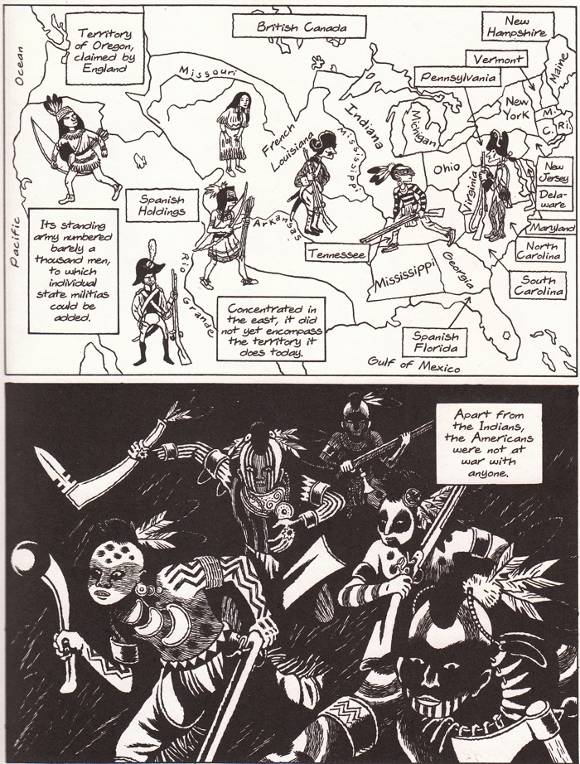
* Matthew Perpetua interviews Arne Bellstorf about his admirably low-key Beatles-in-Hamburg graphic novel Baby’s in Black. Apparently Bellstorf wasn’t (isn’t?) even much of a Beatles fan.
* TCAF organizer Chris Butcher’s con report on the Toronto convention/festival’s latest go-round actually includes the methodology behind its attendance figures! This is kind of amazing if you’ve followed the comic-con circuit for any period of time, especially in contrast with an unfortunate tendency to release questionably high numbers in the wake of bad publicity. MoCCA, Wizard, take note.
* Speaking of, Noel Freibert’s TCAF photo parade is my favorite such post in a long long time. What a haul! What a karaoke outing!
* Finally, Jamieson Cox’s insider account of R. Kelly’s expansion into the world of pharmaceutical manufacturing.
Chopping sounds
Page eight of “Destructor Meets the Cats” has been posted.
You can read the whole story so far on one continuously scrolling page by clicking here.
Carnival of souls: Brian Chippendale, George R.R. Martin, psychopathic children, more
* Here’s everything George R.R. Martin is working on at the moment. Sounds like the fourth Tale of Dunk and Egg is finished.
* How far did you get in Jennifer Kahn’s New York Times Magazine piece on psychopathic children before you recoiled in horror? I hit the panic button at the cat thing, predictably. But in all seriousness, this is a very strong and very troubling article about something that I’ve wondered and worried about since I first started reading about serial killers years ago. Violent sociopathy is a real challenge to a liberal democratic society’s ideas of justice and liberty, and pop-psych serial-killer books tend to hammer that home hard. Kahn’s article adds some welcome, though no less challenging, ideas to the discussion, pointing out that a graduation to adult violent sociopathy is not guaranteed, and thus something likely can be done to save these kids and their future victims, just as people who’ve inherited heart disease can be prevented from dying from it. The problem is no one’s really sure what that something is. Lots more to ponder in this thing: Could you love a cruel child? Why is it so disturbing that the kid at the heart of the article doesn’t just lash out, that instead, he…waits?
* Roger Langridge quits working for Marvel and DC over creators’-rights concerns. I guess this is how it’ll work: people at the margins leaving, and publicly declaring why.
* The Mindless Ones come forth to tackle Mad Men‘s “Lady Lazarus.” A friend planted a far less optimistic appraisal of Peggy in my mind a while back than the one espoused by the Mindlesses, and I’m finding it tough to shake.
* Andrei Molotiu has had it up to here with your so-called “stories.” I like Andrei and I like many of the abstract comics he’s championed, but this post reminds me of that Sopranos episode where the local rock band guy complains about how the Beatles have boxed in his own genius.
* Oooh, a new I Just Figured It All Out from Tom Neely.
* Oooh, a new A Wrinkle in Time promo image from Hope Larson.
* Oooh, a new gif/image gallery from Uno Moralez.
* This is a gorgeous Karl Wills page. Funny, great physicality, love the blood spatter, love the big white thighs, love the erasure of the faces as the fight begins.
* Rob Bricken’s piece on the CW’s forthcoming Green Arrow show Arrow made me laugh. “People might accidentally recognize the name ‘Green Arrow’ — we all know how unpopular superheroes are nowadays!”
* Can you imagine listening to M83’s “Kim and Jessie” as a real-live emotional teenager?
* “You think you’re better than me?” is humankind’s worst emotion.
* Finally, there’s a panel in this Puke Force strip by Brian Chippendale that sums up America’s drone wars so perfectly and devastatingly I don’t even know what else to say. You’ll know the one when you click the link for the full comic.
BREAKING: KRISTEN STEWART LOVES BLACK HOLE BY CHARLES BURNS
Drifting over to the graphic novel section, Stewart gasps at seeing Black Hole. “This fucking store is like kismet!” she says. “I want to do this movie!” The book, about a sexually transmitted plague, “is disgusting, so gross,” Stewart enthuses. “I love the first image” – she turns to a completely black page with a white vagina-shape opening in the center – “a slit. You just grow, like, holes in your body. The imagery is so weird. See” – she flips to another page – “he’s looking at her hand and soon there’s gonna be a little mouth in there. It’s so sexual, the desire is so fucking palpable, but it feels so dirty, like [the characters] are so ashamed because they’re diseased, they’re literally getting these holes.”
—Kristen Stewart, Elle, June 2012
NOT MAD AT THIS AT ALL
Mad Men thoughts, Season Five, Episode Nine: “Dark Shadows”
* Ah, so this is what a non-tour-de-force episode of Mad Men looks like. I’d almost forgotten!
* Due to the domino effect of no longer having advance screeners for Game of Thrones, I didn’t get to watch this episode until last night. Though I deserve an honorary degree from a prestigious university for my achievements in dodging Mad Men spoilers on Twitter all day long, I still managed to gather that this episode’s q-rating was lower than normal among critics. You probably don’t need to look any further than the presence of the woman in the second shot of the ep to figure out why, but beyond reflexive Bettyhate, I really do think there was simply a bit of a comedown from the astonishing “Mystery Date”/”Signal 30″/”Far Away Places”/”At the Codfish Ball”/”Lady Lazarus” run. “Dark Shadows” didn’t have a setpiece or a grand unifying theme or a psychedelic ’60s touchstone or a particularly impressive visual palette or even (despite the title, despite Betty’s shocking act of vengeance) the ominpresent sense that something awful is going to happen — it was just an hour of good television involving complicated characters, centered largely on one who most viewers dislike. But we’d be blessed if this were the baseline of quality for this or any other show.
* The Rise of Ginsberg. To swipe a line from his namesake, the best mind of his generation. To swipe a line from Rizzo, read the rest of the poem, you boob.
* I was so entertained by Bert Cooper’s brief return to the spotlight — checking his watch to measure the length of Roger and Jane’s marriage was a particularly lulzy moment — that I didn’t even notice how much I miss him as an eminence grise. He’s mostly a figure of fun for the SDCP gang, now. I mean, he always was, but he was also gnomic and intimidating. Now he’s the guy who says “don’t start the meeting without me” after the meeting has already ended, the guy who quits the company in disgust one season but is back the next like everything he’d done and said was meaningless.
* I miss Betty, too. Yeah, big Betty fan here. I have no desire to wedge my feelings about her against those of everyone who dislikes her so much, because then I’m never really sure what it is I’m actually responding to, the character or the conversation. But, it seems to me like including one character who doesn’t grow, who doesn’t change, who if anything seems to get more childishly vindictive and unhappy no matter what her status quo is, is not a lapse but a contrast.
* And she was given the episode’s emotionally strongest material. I can hardly imagine how devastating it must have been to see that her distant, damage-causing husband was writing beautiful little love notes to his new wife over nothing at all, over going to the store to buy lightbulbs. Like, I gasped, went “woof” out loud for her. Then I did it again when she revealed the existence of Anna Draper to Sally, a crazily impulsive and dangerous and mean and traumatizing thing for her to do. What the fuck, Betty? Then there’s the dynamic of her at Weight Watchers: when things go bad, she loses. Then when things go bad, she doesn’t. Let me tell you something, you don’t have to have a recovered anorexic wife to learn what a terrible idea it is to tie your eating and your body directly to negative circumstances…but it helps! She got the best physical beats, too: Crumpling up Bobby’s drawing and throwing it at the garbage can but not even getting it in, chugging the Cool Whip then spitting it out, slamming things when she realizes her plan to drive a wedge between Sally, Don, and Megan failed. And she got that wonderful line, “I’m thankful that I have everything I want, and no one else has anything better.” I have a hard time understanding how you could be bored or impatient or dissatisfied with the Betty material, to be honest. It’s razor sharp.
* Haha, looks like Betty didn’t need Don and Megan’s tag-team Cool Whip pitch at all! Just taste it, indeed.
* “Why a pig?” “I don’t know, but everyone laughed.” Rizzo and Ginsberg reveal the essence of art.
* Great dynamics in that scene that introduces Don and Ginsberg’s competing pitches for Snowball, too. Rizzo brown-nosing, Ginsberg passive-aggressing, Don coming on just a little too strong (“There’s a 95% chance you’re thinking ‘snowball in hell’”), Peggy reacting to three guys with whom she’s intensely competitive but whom she also appears to like. When I think of Mad Men as a rich show, this is what I’m talking about.
* So many wonderfully revealing, fleeting facial expressions in this episode. Don rolling his eyes at himself for coming up with “sinfully delicious.” Betty flashing a “hey, wait a minute” look in the eyes when her Weight Watchers counselor refers to “skinny people” as a group that doesn’t include her. Jane lighting up when Roger offers to be her sugar daddy again. Peggy’s gleeful smirk when Ginsberg loses to Don — angry take-no-prisoners Peggy is the best Peggy. Roger’s sad-sack mien when he apologizes to Jane for “ruining” her new apartment, someone who’s play-acting at being sad in hopes he’ll actually feel it. Maybe he could take crying lessons from Megan?
* “So, you suddenly have no problem telling people I’m Jewish?” Is Jane talking to Matthew Weiner?
* This week in Ominous Orange: Betty’s stranger-in-a-strange-land comportment as she enters Orangeworld, i.e. the nu-Drapers’ apartment. The red-headed Dark Shadows auditioner skewering Megan as a one-percenter, then bringing up the coming Thanksgiving holiday so portentously it was like she was talking about Megan’s coming execution. And best of all, the GIGANTIC empty orange couch in Pete Campbell’s office when Beth pays her sexy visit, subsequently revealed to be the location for his sensual daydream to treasure forever.
* Speaking of: jeeeeeeeez, Alexis Bledel. I didn’t even mind her digitally removed nipple. Well, okay, I did, but not much.
* Every line in the Roger/Ginsberg meeting was a fucking scream:
“…and murder.” “…You’re not coming to dinner.”
“Normal people. You know what I mean. People like me.”
“It has to be cheap—” “Surprise.”
“Bring me your best by sundown Friday. (I have done a little research.)”
Yeah, there basically came a point in that scene when I just started transcribing it. I wish I’d had the presence of mind to get the initial stuff about Roger wink-wink-nudge-nudging about his LSD experience, too.
* “The thrill of having poisoned us from 50 miles away.” Megan had the right of it and Don knows it. They both apologize to each other, and they both mean it. Love this couple.
* Gene Draper is ADORABLE in his footie pajamas!
* Don’s done pathetic things in his personal life from time to time, and from very early on — think of his panicked attempt to ditch everyone and escape with Rachel Mencken in the first season. But spiking Ginsberg’s superior idea for Snowball is the first professionally pathetic thing we’ve seen him do. His confrontations with Pete, Duck, Hilton, Ted Chaough, and the loss of Lucky Strike all made him look stronger and smarter. This makes him look weak and defensive.
* If you…are thinking…of opening…the balcony doors…DON’T!

